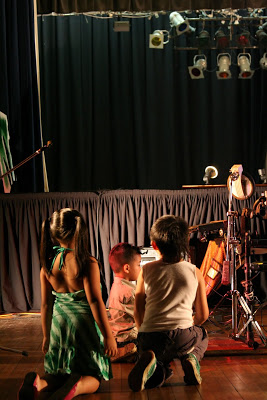Courage is the ladder on which all the other virtues mount. ~ Clare Booth Luce
For nearly a year now we’ve been talking about the nature of courage and courage development in children, and talking about courage as the mechanism for activating other values or qualities (some might like the word “virtues.”) Today, here are my thoughts about one of those values, qualities or virtues: patience.
Patience can be activated by physical courage if it requires sitting still or restraining an impulse; it might be supported by emotional courage if it requires a belief in a loved one’s ability to fulfill a promise; it might be activated by spiritual courage if it requires willingness to live in uncertainty about purpose or meaning during chaotic times. I’m sure by now our faithful readers can extrapolate their own examples for the six types of courage as they relate to patience.
We know that fear is inspired by uncertainty and lack of control. While we are waiting for something we are uncertain: will it happen at all? will I like it? will it be what I imagine? will I get a piece with blue frosting or yellow frosting? On top of that is the uncertainty of how we will manage our disappointment if IT doesn’t fulfill our expectations. While we are waiting for something we usually have no control, since we can’t speed up time or manipulate events. Thus, the ability to tolerate this uncertainty and lack of control requires courage, which then allows for patience.
I’ve been noticing recently how waiting has changed since my own childhood. The Wizard of Oz was broadcast on television once a year, and missing it meant having to wait another year. Likewise for The Sound of Music, How the Grinch Stole Christmas, and countless other “big” or seasonal movies. In just the four years since my daughter arrived here from Ethiopia at the age of eight, we’ve gone from being able to buy a movie on DVD to watch anytime, to being able to download or stream movies instantly to laptop, tablet or t.v. You don’t even have to go to the store to buy the DVD (or to the library to borrow it). No waiting required. Same with music, many television shows, and books. Instantly has become the one of the dominant motifs of our children’s growing-up years.
As I see it, we seek to quell the fear inspired by uncertainty through instant gratification. The insidious problem with that is that it’s never enough; there will always be something else just one step ahead of us in the future, creating uncertainty. On top of that, the false promise of instant gratification obscures the fact that some things can never be instant – skill does not come instantly, for example, but must be developed through hours, weeks or years of steady practice. Without patience we quit early, grumpy and disenchanted by the tedious slowness of it all.
This is not a rant about how much better things were when I was a kid, or how much worse they are now (they weren’t and they aren’t). I’m just saying that they are different as it relates to organic opportunities for learning the skill of waiting. We are swimming in instant: instant foods, instant entertainment, instant messages, instant downloads, instant photos, instant feedback, etc.. Because of this, I find I have been looking for opportunities to teach this skill of waiting to my daughter. In my post “I Can’t Do It. Yet.” I wrote about the word “Yet” as a great tool for coaching patience – as in, “it’s true you can’t do it yet, but keep trying and eventually you will.”
Very young children live in the present, so for them, waiting for anything is a baffling torment of “why? why? why?” Sometimes the only thing that a parent can do is distract, as in this story from India, Birbal Shortens the Road. But as children get older and the concept of time becomes more concrete, cause and effect begin to make sense. At twelve, my daughter is young enough to be highly reactive and suggestible (Mom, can I get this song on my iPod right now?) but old enough to recognize that Mom doesn’t play that tune, if you know what I mean. To help her with learning patience, I try to take some of the sting out of the uncertainty of waiting: I am boringly predictable and consistent with routines (dinner at six, regular bedtime, daily chores, etc.) I make sure she understands what she has to do to earn the next download to her iPod. I try to be clear about when things will happen in the future, such as when she will achieve the sparkling dream of cell phone ownership. I tell her what new privileges and opportunities she can look forward to next year or the years after that, and involve her in planning future events or activities.
 At the same time, I point out that although I have expectations about the future, I can’t control it. I expect it will take about twenty more minutes to get home from this BORING car trip, but we could run into traffic, or we might see an awesome tag sale going on, or something unforeseen may occur. I tell her that I acknowledge my uncertainty and my lack of control over the future, and demonstrate by my own patience that it’s possible to survive both. (By the way, I’m talking about best-case scenarios, not the ones where I lose my temper and my patience!)
At the same time, I point out that although I have expectations about the future, I can’t control it. I expect it will take about twenty more minutes to get home from this BORING car trip, but we could run into traffic, or we might see an awesome tag sale going on, or something unforeseen may occur. I tell her that I acknowledge my uncertainty and my lack of control over the future, and demonstrate by my own patience that it’s possible to survive both. (By the way, I’m talking about best-case scenarios, not the ones where I lose my temper and my patience!)
In the end, patience may simply be a matter of accepting reality. No amount of fretting and agitation in the present can alter the space-time continuum to make time speed up, so just let it go. Just wait.

